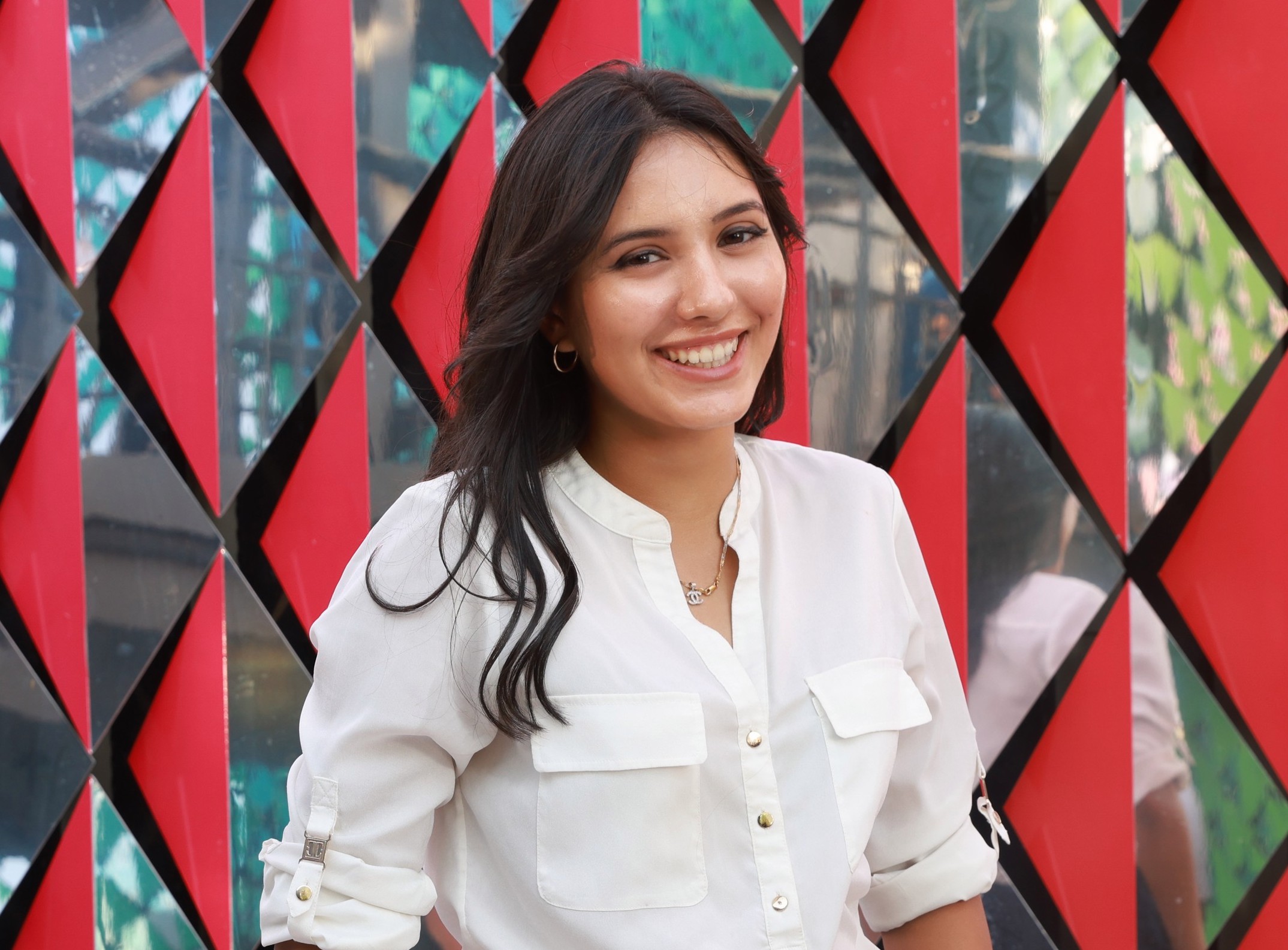UAE’S MAYA BRIDGMAN MAKES FINAL TEN FOR THE $100,000 CHEGG.ORG GLOBAL STUDENT PRIZE 2022
UAE student Maya Bridgman has been named a top 10 finalist for the Chegg.org Global Student Prize 2022, a $100,000 award to be given to one exceptional student that has made a real impact on learning, the lives of their peers and on society beyond.
Maya, a 17-year-old Canadian studying computer science, psychology, biology and mathematics at Dubai College in Al Sufouh, was selected from over 7,000 nominations and applications from 150 countries around the world.
The Varkey Foundation partnered with Chegg.org to launch the Global Student Prize last year, a sister award to its $1 million Global Teacher Prize. It was established to create a powerful new platform that shines a light on the efforts of extraordinary students everywhere who, together, are reshaping our world for the better. The prize is open to all students who are at least 16 years old and enrolled in an academic institution or training and skills program. Part-time students as well as students enrolled in online courses are also eligible for the prize.
Maya Bridgman is passionate about increasing the accessibility of computer science, AI, and machine learning for all students, regardless of their age, gender, location, income, or experience. Maya established the Dubai AI Society, which has now grown into a global community of over 600 students across four continents. She is working with the UAE Ministry of AI to bring an AI workshop to more than 500 schools in Dubai, and is a regular delegate and speaker at Model Congress and Model United Nations conferences.
Maya has created free teaching guides aimed at individual students as well as groups, that require no stable wifi access, programming prerequisites, or computer science knowledge. She has partnered with several NGOs in India, the Children's Cancer Centre Lebanon, the Baghdad Business School, and the Iraqi Children's Foundation to share this knowledge with disadvantaged or underprivileged individuals to allow them the same access to artificial intelligence education.
Dan Rosensweig, CEO and president of Chegg, said:
“Since its launch last year, the Global Student Prize has given incredible students all over the world a chance to share their stories, connect with each other, and reach influencers in education and beyond. Now, more than ever, students like Maya deserve to have their stories told and have their voices heard. After all, we need to harness their dreams, their insights, and their creativity to tackle the daunting and urgent challenges facing our world.”
Sunny Varkey, founder of the Varkey Foundation, said:
“I extend my warmest congratulations to Maya. Her story is a testament to the crucial role that education plays in building a better tomorrow for us all. It is the key to solving humanity’s greatest challenges, from war and conflict to climate change to growing inequality. As time runs out to achieve the Sustainable Development Goals, it is more important than ever to prioritize education so we can face the future with confidence.”
The other top 10 finalists for the Chegg.org Global Student Prize 2022 are Alesyah Asa, from Malaysia; Anagha Rajesh, from India; Gitanjali Rao, from the US; Igor Klymenko, from Ukraine; Kenisha Arora, from Canada; Lucas Tejedor, from Brazil; Mathias Charles Yabe, from Ghana; Nathan Nguyen, from Australia; and Nicolás Alberto Monzón, from Argentina. The winner is expected to be announced later this month during UN General Assembly week in New York.
Applications and nominations for this year’s Global Student Prize opened on Thursday 27 January and closed on Sunday 1 May. Students are being assessed on their academic achievement, impact on their peers, how they make a difference in their community and beyond, how they overcome the odds to achieve, how they demonstrate creativity and innovation, and how they operate as global citizens.
Actor and humanitarian Hugh Jackman announced last year’s winner, Jeremiah Thoronka, in November 2021. Jeremiah, a 21-year-old student from Sierra Leone, launched a start-up called Optim Energy that transforms vibrations from vehicles and pedestrian footfall on roads into an electric current. With just two devices, the start-up provided free electricity to 150 households comprising around 1,500 citizens, as well as 15 schools where more than 9,000 students attend.
If students were nominated, the person nominating them was asked to write a brief description online explaining why. The student being nominated was then sent an email inviting them to apply for the prize. Applicants were able to apply in English, Mandarin, Arabic, French, Spanish, Portuguese and Russian. To join the conversation online follow @cheggdotorg













